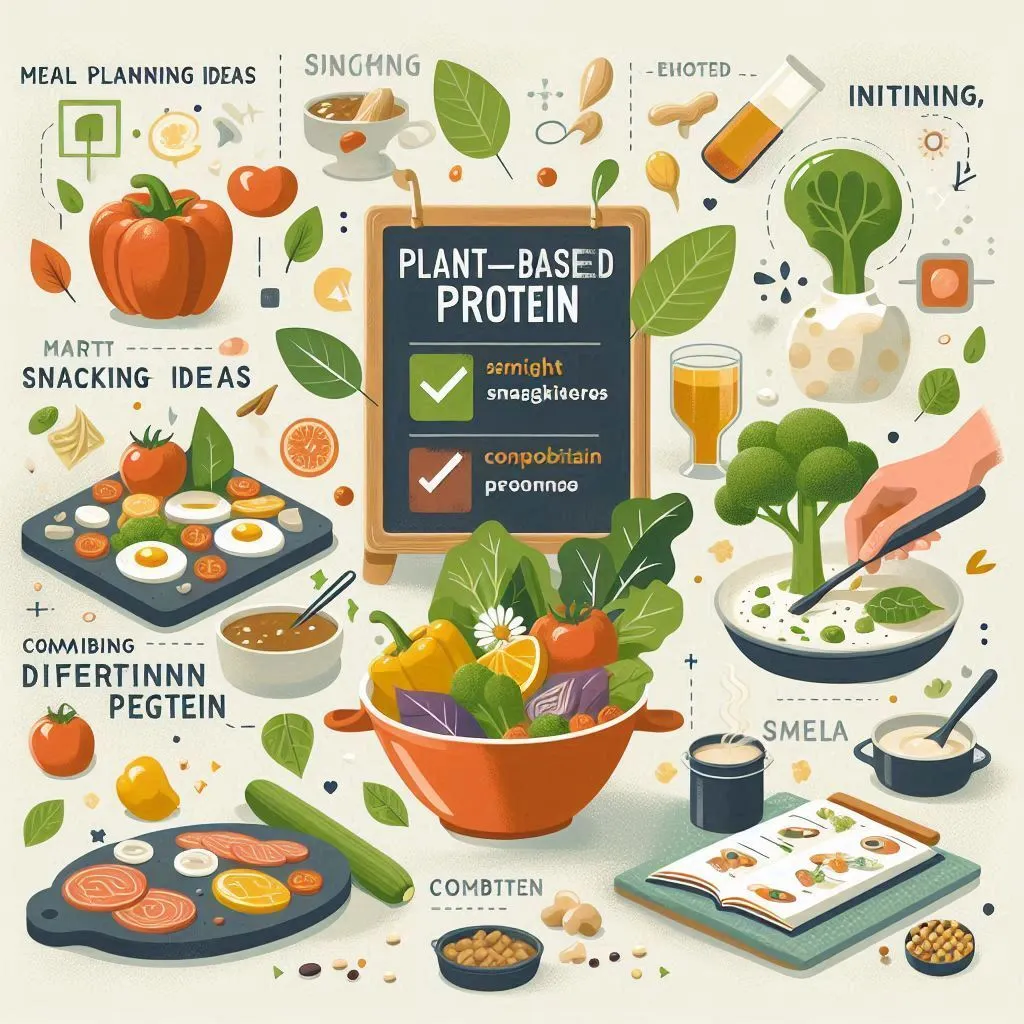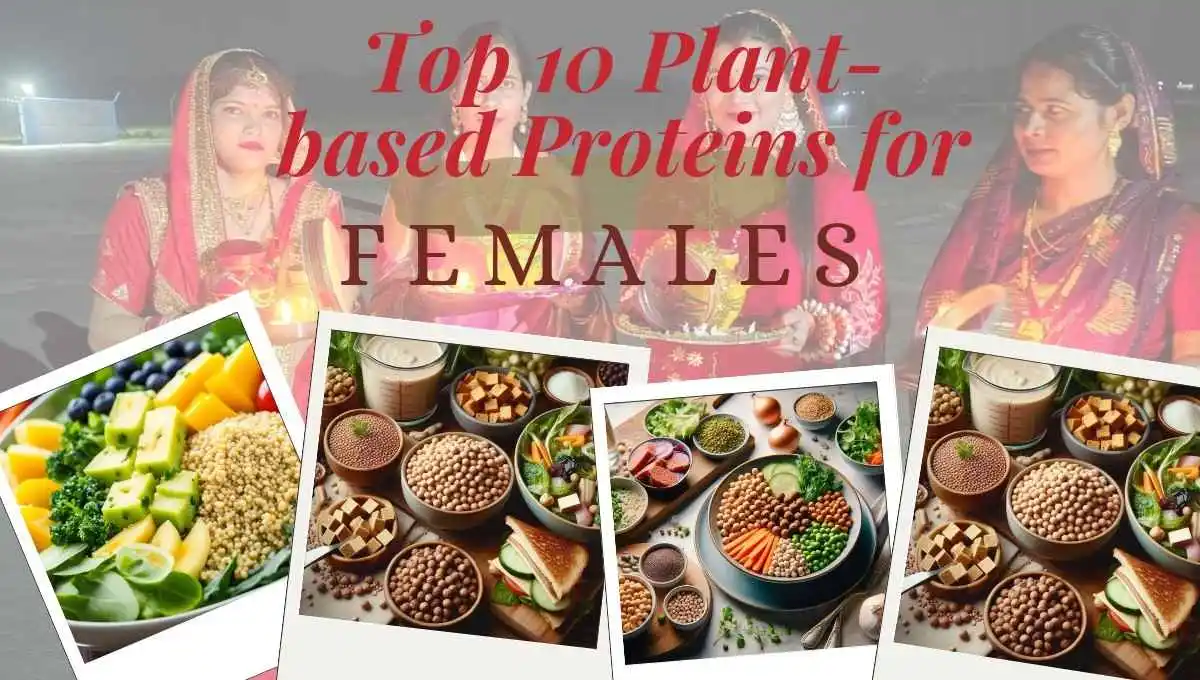10 Plant-Based Proteins for Optimal Female Nutrition
Protein is one such thing that everyone’s body needs, but most importantly, it is essential for women. It is required for maintaining healthy muscles, producing hormones, and overall well-being in general. Here, we are presented with the top 10 plant-based proteins that are beneficial for women. They can keep you fit, energetic, and healthy.
Importance of Protein for Women
Women have unique nutritional needs. Proteins have many uses in the body. It will help in tissue formation and repair. It also supports hormone balance, which is vital during different life stages.
Women require an adequate amount of protein in their diet during menstruating, pregnancy, or experiencing menopause. On the other hand, plant-based proteins may be extremely convenient. They offer many benefits without the saturated fats found in some animal products.
Criteria for Selecting Plant-Based Proteins
When choosing plant-based proteins, consider a few things:
1. Complete vs. Incomplete Proteins:
A complete protein contains all nine essential amino acids. Because most plant proteins are incomplete, but you can combine them to get all the amino acids you need.
2. Nutritional Profile:
Select those proteins that are rich in vitamins and minerals, along with protein content.
3. Sustainability and Ethics:
Plant-based proteins are generally more sustainable and less harmful compared to animal sources. They require fewer resources to produce.

Top 10 Plant-Based Proteins for Females
1. Lentils
Lentils are fully loaded with protein—approx 18 grams per cooked cup. They are also high in iron and folate, which help boost energy levels and support heart health. You can add lentils to soups, salads, simple dal with chapati or make lentil burgers.
2. Chickpeas (Garbanzo Beans)
Chickpeas contain around 15 grams of protein per cooked cup. They are also rich in fiber and folate, which help in improving digestive health and heart health. Use chickpeas in salads, make hummus, or add them to curries.
3. Quinoa
Quinoa is a complete protein with about 8 grams per cooked cup. It is also very rich in magnesium and fiber. Quinoa is great used as a base for grain bowls or salads.
4. Tofu
Tofu contains around 20 grams of protein per cup (firm tofu). It’s also a good source of calcium and iron, which support your bone health and hormonal balance. You can stir-fry tofu with vegetables or add it to soups.
5. Tempeh
Tempeh has about 31 grams of protein per cup. It is a fermented soy product that’s rich in probiotics, which aid digestion. Slice tempeh for sandwiches or add it to stir-fries.
6. Black Beans
Black beans are considered an excellent source of protein as a cooked cup contains around 15 grams of protein. Fiber-rich and antioxidant, they promote healthy living and improved physical well-being. Black beans should be included in tacos or burritos.
7. Edamame
Mature soybeans cultured for pod consumption at a green stage are called edamame; one cup, cooked, has about 17 grams of protein.
They also contain vitamins C and K, both of which are important for healthy skin as well as the immune system. Maybe you’d like to take edamame as they are when serving as a snack or included in salads.
8. Hemp Seeds
Hemp seeds provide about 10 grams of protein per three tablespoons. Omega-3s and magnesium are also included in large volumes, which ensures improvement in your heart’s health and reduces inflammation. Add hemp seeds as toppings over fruit bowls, and yogurts or you can toss them into your smoothies or oatmeal.
9. Chia Seeds
Chia seeds contain around 5 grams of protein per two tablespoons. They are rich in fiber and omega-3s, promoting digestive health and satiety. Mix chia seeds into smoothies or make chia pudding.
10. Nuts (Almonds and Walnuts)
Nuts like almonds and walnuts offer about 6 grams of protein per ounce (almonds). They provide us with healthy fats, vitamin E, and magnesium for heart health and skin health. Snack on raw nuts or add them to meals.
Tips for Incorporating Plant-Based Proteins into Your Diet
1. Meal Planning Ideas: Plan your meals with these proteins to ensure you get enough.
2. Snacking Smartly: Choose snacks like roasted chickpeas or nut butter on whole-grain toast.
3. Combining Different Proteins: Mix different plant proteins to create complete meals.
4. Experimenting with New Recipes: Try new dishes that highlight these proteins.
Conclusion
Plant-based proteins offer many benefits for women’s health. They support hormonal balance, weight management, and overall wellness. By incorporating these top 10 plant-based proteins into your diet, you can enjoy delicious meals while staying healthy!



